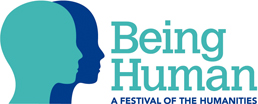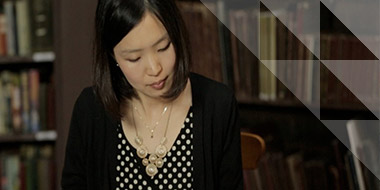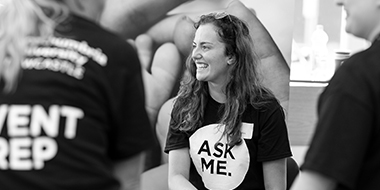-
Study
-
Clearing 2025
- Clearing FAQs
- Clearing VIP
- Clearing Case Studies
- Unlock Your Potential
- Undergraduate Funding
- Search Clearing
-
Undergraduate
- UCAS Clearing & Confirmation 2025
- Application Guides
- UCAS Exhibitions
- Foundation Years
- School & College Outreach
- Information for Parents
-
Postgraduate
- Application Guide
- Postgraduate Research Degrees
- Flexible Learning
- Change Direction
- Register your Interest
-
-
International
International
Northumbria’s global footprint touches every continent across the world, through our global partnerships across 17 institutions in 10 countries, to our 277,000 strong alumni community and 150 recruitment partners – we prepare our students for the challenges of tomorrow. Discover more about how to join Northumbria’s global family or our partnerships.
View our Global Footprint-
Quick Links
- Course Search
- Undergraduate Study
- Postgraduate Study
- Information for Parents
- London Campus
- Northumbria Pathway
- Cost of Living
- Sign up for Information
-
International Students
- Information for Students
- International Events
- Application Guide
- Entry Requirements and Education Country Agents
- Global Offices
- English Requirements
- English Language Centre
- International student support
- Cost of Living
-
International Fees and Funding
- International Undergraduate Fees
- International Undergraduate Funding
- International Masters Fees
- International Masters Funding
- International Postgraduate Research Fees
- International Postgraduate Research Funding
-
International Partners
- Agent and Representatives Network
- Global Partnerships
- Global Community
-
International Mobility
- Information for Northumbria Students
- Information for Incoming Exchange Students
-
-
Business
Business
The world is changing faster than ever before. The future is there to be won by organisations who find ways to turn today's possibilities into tomorrows competitive edge. In a connected world, collaboration can be the key to success.
More on our Business Services -
Research
Research
Northumbria is a research-rich, business-focused, professional university with a global reputation for academic quality. We conduct ground-breaking research that is responsive to the science & technology, health & well being, economic and social and arts & cultural needs for the communities
Discover more about our Research-
Quick Links
- Research Peaks of Excellence
- Academic Departments
- Research Staff
- Postgraduate Research Studentships
- Research Events
-
Research at Northumbria
- Interdisciplinary Research Themes
- Research Impact
- REF
- Partners and Collaborators
-
Support for Researchers
- Research and Innovation Services Staff
- Researcher Development and Training
- Research Ethics and Integrity
- University Library - Open Access
- Vice Chancellors Fellows
-
Research Degrees
- Postgraduate Research Overview
- Doctoral Training Partnerships and Centres
- Academic Departments
-
Research Culture
- Research Culture
- Research Culture Action Plan
- Concordats and Commitments
-
-
About Us
-
About Northumbria
- Our Strategy
- Our Staff
- Place and Partnerships
- Leadership & Governance
- Academic Departments
- University Services
- History of Northumbria
- Contact us
- Online Shop
-
-
Alumni
Alumni
Northumbria University is renowned for the calibre of its business-ready graduates. Our alumni network has over 246,000 graduates based in 178 countries worldwide in a range of sectors, our alumni are making a real impact on the world.
Our Alumni - Work For Us
 Academics from Northumbria University are once again taking
part in the national Being Human festival – hosting a variety of free online
events which celebrate the humanities and all they have to offer.
Academics from Northumbria University are once again taking
part in the national Being Human festival – hosting a variety of free online
events which celebrate the humanities and all they have to offer.
From indigenous creation stories, to the representation of sleep in literature, and exploring sex education for marginalised people, this year’s events aim to help us to understand ourselves, our relationships with others, and the challenges we face in a changing world.
This is the seventh year the Being Human festival has been held. In light of Covid-19 restrictions this year’s programme has been adapted, with events either held online or socially distanced.
The theme of this year’s festival – New Worlds – is perfectly timed to reflect on the radical global changes of 2020, from the Covid-19 pandemic to the Black Lives Matter protests and the most important US election in decades.
Northumbria is one of 81 universities and research organisations taking part in this year’s festival, with a wide range of free events take place between 12 – 22 November all over the country and online.
Speaking about Northumbria’s contribution to Being Human, Professor Julian Wright, head of Northumbria’s Department of Humanities, said: “At Northumbria we pride ourselves on bringing important research in the Humanities to a wide audience beyond academia; we’ve long believed in the Being Human festival as a brilliant way to bring ideas and creativity to life in our community and are proud to be leading these events, which connect to many fundamental aspects of human life, in 2020.”
Professor Katy Shaw, Director of Cultural Partnerships at Northumbria University, added: “This year’s programme profiles our regional and national partnership working with Wellcome Trust, New Writing North and the Great Museum of the North.
“Uniting experts in the field with creative practitioners and the best of our culture, these partnership events present a unique opportunity for anyone and everyone to engage virtually with the debates that are shaping our world and join us in taking on the challenges of tomorrow.”
Find out more about the Northumbria University Being Human festival 2020 events and book your place below:
Forty Winks Café
Thursday 19 November, 7pm – 8.30pm
Trouble sleeping? Worried about coronavirus? Want to find out more about representations of sleep, health, and illness in contemporary culture, as well as sleep health? Brew your favourite relaxing tea and get cosy at this virtual café!
This online event, chaired by Claire Malcolm of New Writing North, will feature three short talks by Northumbria University’s academics and Q&A sessions. Prof Katy Shaw will introduce the evening by discussing how writings grapple with health issues like the current pandemic. Dr Diletta De Cristofaro will then take you on a science fiction tour of nightmarish sleepless futures. Finally, Prof Jason Ellis will put you to bed with an interactive session and top tips for a good night’s sleep.
The group will be collecting your recommendations of books and films about sleep, health, and illness into an online resource, so do start suggesting your favourite titles and passages when registering for the café and through #fortywinkscafé on Facebook and Twitter!
Book your place at the Forty Winks Café here and follow on Twitter @writing_sleep, @tedilta and @ProfKatyShaw
Sex Education Zine Café
Thursday 19 November, 6pm – 7.30pm
For marginalised people – particularly women, queer people, and disabled people – learning about sex often involves educating each other and ourselves outside of traditional settings. Join researchers Kit Heyam and Ashleigh Blackwood for a workshop discussing how marginalised people learned about sex in 17th and 18th-century England, how we do it today, and what our vision for the radically inclusive and consent-focused future of sex education might be.
Inspired by the discussion, we'll then invite you to collaborate on making the sex education zine we all wish we'd had. The finished product will be published freely online and deposited in the Wellcome Collection as a community resource.
After the workshop, participants will be emailed a folder of resources for ‘zinespiration’ and you’ll have two weeks to submit your contribution to our collaborative ‘Recreating Sex Education’ zine. Contributions will be collated, and the zine will be published online and deposited as a print copy in the Wellcome Collection’s zine library.
Book your tickets for Sex Education Zine Café here and follow on Twitter @historylitmed and @krheyam
Creation/Creating Stories
Online from 12 - 22 November
What are creation stories? How are creation stories told? This event will introduce young audiences to Indigenous story-telling and creation stories drawing on the Great North Museum: Hancock’s Indigenous collections from North America.
Have a look at our series of videos on Indigenous story-telling and then, using pencils, markers, playdough, or other crafting material at your disposal, create your own story!
You can create a story about the origin of the world or imagine an alternative, new world you would like to inhabit. You will be invited to share your stories with the Museum.
Suitable for ages 5-11 (KS1 and KS2).
Find out more and access the videos for Creation/Creating Stories here.
Find out more about the research taking place as part of our Institute of Humanities Multidisciplinary research theme.
This is the place to find all the latest news releases, feature articles, expert comment, and video and audio clips from Northumbria University
Find out more about the research taking place as part of our Institute of Humanities Multidisciplinary research theme.
This is the place to find all the latest news releases, feature articles, expert comment, and video and audio clips from Northumbria University





